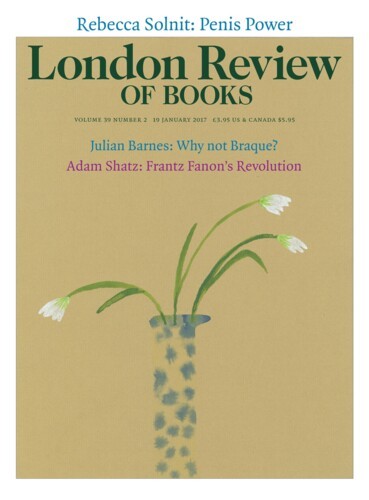In the week the Netherlands goes to the polls, the irruption of Recep Tayyip Erdoğan into the Dutch election has wrenched the campaign out of its somnolence. At the weekend, the Turkish foreign minister, Mevlüt Çavuşoğlu, and the family minister, Fatma Betül Sayan Kaya, came to campaign among Netherlands-based Turks for next month’s plebiscite over extending President Erdoğan’s powers. The Dutch government banned Çavuşoğlu from entering the country and, after stopping Kaya entering the Turkish consulate in Rotterdam, kicked her out into Germany. Turkey has had a long-standing friendship with the Netherlands since Atatürk’s day. ‘Security’, that trusty standby for squelching political inconvenience, is cited as the reason for banning the ministers and their Rotterdam rally. Early on Sunday, police dispersed demonstrators with dogs and water cannon. Erdoğan has accused the Dutch government of Nazism.
Glen Newey
Glen Newey was professor of practical philosophy at Leiden University. He died in 2017.
Utopia in Texas: Thomas More’s ‘Utopia’
Glen Newey, 19 January 2017
Life in Thomas More’s Utopia, like many others inspired by it, isn’t much fun. As Ralph Robinson’s English version of 1551 puts it, Utopians enjoy ‘neither wine-taverns, nor ale-houses, nor stews, nor any occasion of vice or wickedness’. Utopia enforces a form of workfare, and generally its inhabitants have little leisure, which they spend on ‘honest and laudable pastimes’. It all sounds rather Calvinistic.
His Royal Highness the Prince Charles Arthur Philip George, Prince of Wales and nob of much else, has written a Ladybird book on climate change. Naturally, as with other tasks such as brushing one’s teeth and providing one's urine sample, this is not a feat the dauphin has pulled off solo. He’s roped in Tony Juniper of Friends of the Earth (FoE) and Emily Shuckburgh of the British Antarctic Survey for a spot of authorial toothpaste-squirting and flask-holding. Penguin, which owns Ladybird, apparently tapped seven specialists to wrestle with the 5000-word spider-written MS in order, as Roland White of Penguin put it, to 'amend some of the more assertive language to ensure it was bulletproof'.
Back in the day, the rhetoric of American power was thick with talk of high moral purpose. The 'international community', the label of choice for the United States' Facebook fanbase, proved compliant in the face of US-sponsored mass killing in Indonesia under Suharto, the fire-bombing of civilians in Vietnam, and the decades-long portfolio of Monroe Doctrine-inspired murderous dictatorships in Latin America. Hot on the heels of Vietnam and the secret bombing of Cambodia, Henry Kissinger won the Nobel Peace Prize. Latterly the high moral tone took a bit of a knock from the bungled crusades in Afghanistan, Iraq and Libya. But now, in the dying days of the Obama regime, it’s back.
It has been said both that Fidel Castro was a bad man whose henchmen tortured and sometimes killed dissidents, and that Castro was a good man who gave Cuba a healthcare and literacy programme to rival many in the developed world. The BBC, in its quest for ‘balance’, says that people in Havana and Miami (‘only ninety miles away’), which hosts Trump’s only significant Hispanic constituency, are saying these things. Philosophers chew over the ‘problem of dirty hands’ – thought to arise when a politician does something morally wrong in the name of securing a public good or preventing a public bad. It's notable that the problem is framed in that way, rather than as one that arises when a politician fails to secure the public good or prevent the bad by avoiding doing something morally wrong – the ‘problem of clean hands’, as it might be called. The notion that actors can acquit themselves of blame often relies on the fantasy that they act in a historical vacuum.
Pieces about Glen Newey in the LRB
Sensitivity isn’t enough: the theory of toleration
Peter Berkowitz, 7 September 2000
Once liberalism’s signature virtue, toleration has of late been superseded by other more fashionable ideals. Foremost among these is ‘sensitivity’, before which there was...
Read anywhere with the London Review of Books app, available now from the App Store for Apple devices, Google Play for Android devices and Amazon for your Kindle Fire.
Sign up to our newsletter
For highlights from the latest issue, our archive and the blog, as well as news, events and exclusive promotions.


